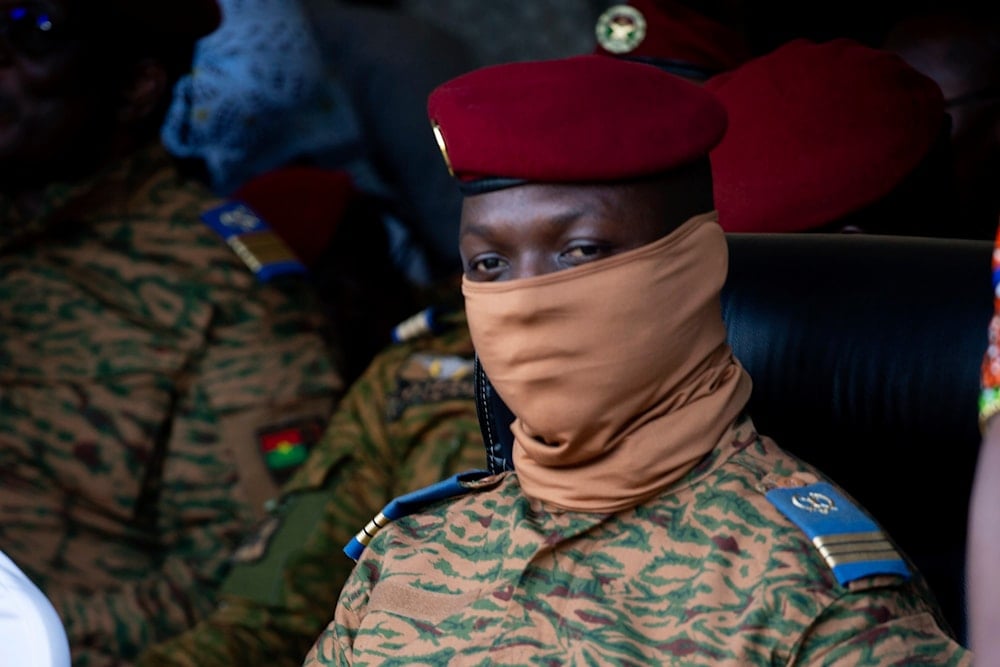Burkina Faso extends civilian transition deadline for 60 months
A national committee has decided to allow Captain Ibrahim Traore to run for the next presidential election in Burkina Faso.
-

Burkina Faso leader Captain Ibrahim Traore participates in a ceremony in Ouagadougou, Burkina Faso, on October 15, 2022. (AP)
Burkina Faso will transition from the rule of the Patriotic Movement for Safeguard and Restoration to civilian rule in the next 60 months following July 2, 2024, Colonel Moussa Diallo the chairman of the organizing committee of the national dialogue process announced after talks.
Burkina Faso is currently led by Captain Ibrahim Traore, who came to power following a coup that ousted Paul-Henri Sandaogo Damiba.
Crucially the committee agreed to allow Traore to run for the presidential election.
The country has made drastic changes in terms of its geopolitical positioning, allying itself with several West African nations that saw similar coups, including Mali and Niger. Traore is seen by many as a young revolutionary leader, whose impact has resonated across the African continent.
For decades the Sahel has been a gold mine for colonial governments such as the French government, which has, over time, substituted its direct colonization of these nations with financial and political control over its governments.
The three aforementioned nations in West Africa have also suffered from extremists who have wreaked havoc in the region. One of the primary objectives of the military councils that came to power in Mali, Burkina Faso, and Niger was to eliminate extremists and Western military presence from their territories.
Read more: Burkina Faso: Journey to independence unfolds post-ECOWAS
Burkina Faso joins West African confederation
Earlier this month, the governing bodies of Burkina Faso, Mali, and Niger finalized plans to form a confederation. A triad of foreign ministers met on May 17 in Niamey, Niger, to formally agree on a text establishing the Confederation of the Alliance of Sahel States (AES), marking a critical turn of events in West African history.
"The objective was to finalize the draft text relating to the institutionalization and operationalization of the Confederation of the Alliance of Sahel States (AES)", Niger's Foreign Minister Bakary Yaou Sangare said as he read out the final statement of the meeting.
"We can consider very clearly, today, that the Confederation of the Alliance of Sahel States (AES) has been born," Malian Foreign Minister Abdoulaye Diop said after meeting General Abdourahamane Tiani, the Nigerien President of the National Council for the Safeguard of the Homeland.
Burkina Faso's Karamoko Jean-Marie Traore was also present at the meeting.
The three countries have made strides in reinforcing military cooperation quickly after former Nigerien President Mohamed Bazoum was overthrown in late July 2023.
Liptako–Gourma, a tri-border area shared by the three countries, has been a hub for terrorism that France and other Western nations and entities have taken advantage of to increase their military presence in West Africa. Although countries like France promised to abolish regional terrorism, they failed to do so, prompting military leaders to take matters into their own hands.
Read more: Russia, Mali launch construction of largest solar plant in West Africa

 3 Min Read
3 Min Read








